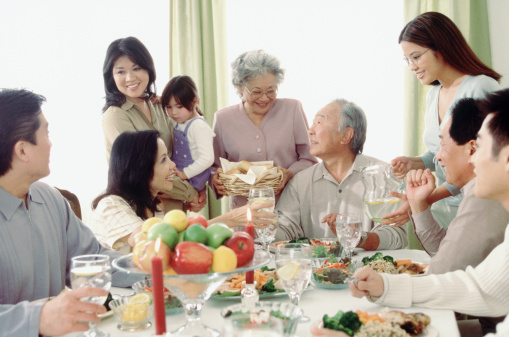
Scott Tanaka
As I reflect on this past year, all I can say is that it’s been a year. I am grateful, however, for the return of family gatherings and in-person activities. The holiday season is well underway, and I was happy to attend the JACL Washington, D.C. chapter’s annual mochitsuki event in person!
Mochitsuki is a tradition for our chapter and many Japanese American families, where we come together to pound rice to make mochi. We always have delicious food, including homemade ozoni, a traditional Japanese New Year’s dish. And we had the return of the JBE Band! The band is comprised of musicians who work at the Embassy of Japan and Japanese corporations who are members of the Japan Commerce Association of Washington, D.C. I am so glad they were able to join us once again. Mochitsuki was a great opportunity to catch up with friends and make new ones — what a way to close out the year!
With all the busyness the holiday season brings, I want to take this opportunity to talk about the Global Council on Brain Health and brain healthy habits. The GCBH is an independent organization, convened by AARP, to provide trusted information on how all of us can maintain and improve our brain health.
Clear and dependable recommendations generated by GCBH are based on current scientific evidence provided by scientists, doctors, scholars and policy experts from around the world.

Staying connected with others is good for your brain and overall health. (Photo: AARP)
The GCBH is led by my colleague, Sarah Lenz Lock, JD, senior VP for policy and brain health. Sarah’s team is part of AARP’s Policy, Research and International Affairs department, which is the part of the organization I work in. The council has developed the Six Pillars of Brain Health, which include:
Be Social — Keep in touch with friends and family, and don’t let yourself get isolated.
Engage Your Brain — Find ways to stimulate your thinking, explore new interests and hobbies.
Manage Stress — Practice relaxation, adopt a stable daily schedule.
Ongoing Exercise — Move throughout the day and target two-and-a-half hours a week of moderate physical activity.
Restorative Sleep — Get seven to eight hours of restful sleep every day.
Eat Right: Choose a nutritious, heart-healthy diet of fish, veggies and fruits.
I know this list can seem overwhelming, but you don’t have to tackle it all at once. Start small, and find what works for you. Exercise doesn’t need to be about lifting weights and walking on the treadmill, it could just be working in the garden.
During my most recent trip back home to Los Angeles, I saw an older couple picking up trash on the beach. This may not seem like exercise, but it got them outside and moving. A bonus is that they were serving their community and helping to take care of the environment.
For me, an important one is to be social. This is especially true during the holidays where people may feel the impact of isolation more or are missing loved ones that are no longer with us. So, even if you’re not able to gather in person, check in on one another. Staying connected with others and letting them know you care is good for our brains and our overall health.
I want to close by saying that these Six Pillars of Brain Health are not just for older adults. They are good for all of us. To learn more about the Global Council on Brain Health and access its free resources, please visit GlobalCouncilonBrainHealth.org.
You can also sign up for a quarterly e-newsletter by sending an email with your first and last name to GCBH@aarp.org.
I hope everyone stays healthy and safe this holiday season, and I wish you all the best for the New Year!
Scott Tanaka is a member of the JACL Washington, D.C., chapter and is a policy, research and international affairs adviser at AARP.



